Are you looking to streamline your sea freight process from China to Djibouti?
Understanding the complexities of this logistics route is crucial for successful trade. In this comprehensive guide, we will delve into the importance of sea freight in the China-Djibouti trade landscape, explore various options like Less than Container Load (LCL) and Full Container Load (FCL) shipping, and provide insights on costs, transit times, and documentation. Get ready to optimize your shipping strategy and ensure a smooth transportation experience!
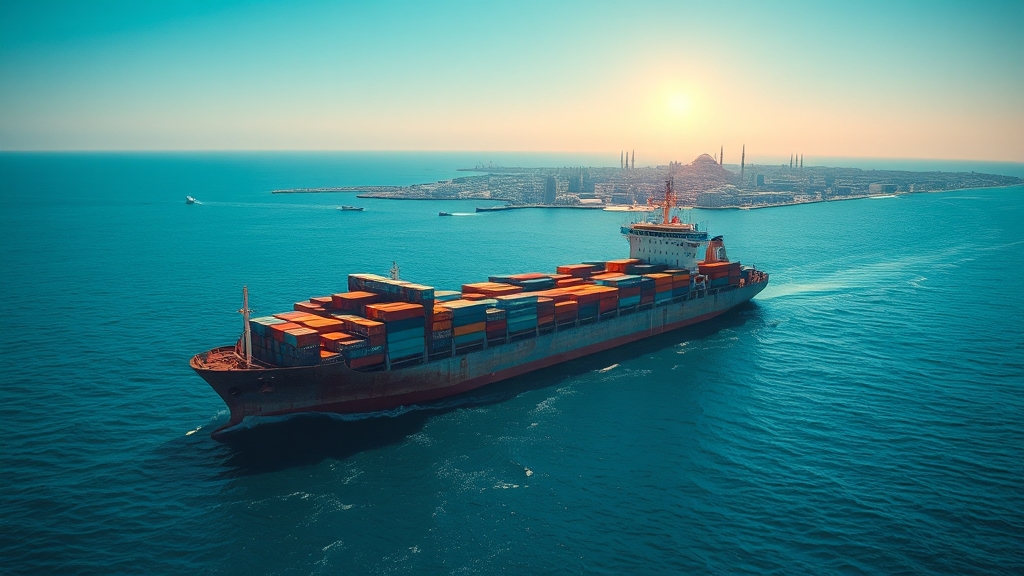
Introduction to Sea Freight from China to Djibouti
Importance of Sea Freight in China-Djibouti Trade
Sea freight plays a crucial role in facilitating trade between China and Djibouti, acting as a vital artery for the exchange of goods. With Djibouti being strategically located at the entrance of the Red Sea, it serves as a key gateway for shipping routes to the Horn of Africa and beyond. According to the World Bank, Djibouti’s geographic position enhances its capacity to handle logistics and shipping services, making it a preferred hub for international trade. The economic ties between China and Djibouti have grown significantly, with bilateral trade reaching approximately $1.5 billion in 2020, underlining the importance of efficient sea freight options in supporting this economic partnership (source: World Bank, World Development Indicators).
Overview of Sea Freight Options and Benefits
When exporting goods from China to Djibouti, businesses have several sea freight options to consider, each with its own set of benefits. These options primarily include Less than Container Load (LCL) and Full Container Load (FCL) shipping.
- Cost-Effectiveness: Sea freight is often more economical compared to other modes of transport, especially for bulky or heavy shipments.
- Capacity: Shipping by sea allows for transporting large quantities of goods, making it ideal for businesses looking to scale.
- Environmental Impact: Sea freight has a lower carbon footprint compared to air freight, making it a more sustainable choice for businesses conscious of their environmental impact.
- Flexibility: The sea freight industry has a well-established network of routes and schedules, providing flexibility in shipping based on the nature of the goods and required timelines.
Dantful International Logistics offers comprehensive sea freight solutions tailored to meet the diverse needs of traders looking to export goods from China to Djibouti. Our experience in managing both LCL and FCL shipments ensures that customers receive efficient, cost-effective, and high-quality service.
Understanding Sea Freight Options
Less than Container Load (LCL) Shipping
Less than Container Load (LCL) refers to a shipping option where multiple shippers share space within a single shipping container. This option is particularly advantageous for exporters with smaller shipments.
Definition and Advantages of LCL
- Cost Efficiency: LCL is often more economical for shipping smaller quantities of goods, as costs are shared among multiple shippers.
- Accessibility: It provides an opportunity for small and medium-sized enterprises (SMEs) to participate in international trade without the need to fill an entire container.
- Reduced Inventory Costs: LCL allows businesses to ship goods on demand, thereby reducing the need for extensive warehousing.
Ideal Use Cases for LCL
- Small or Medium Shipments: Businesses with lower volume shipments that do not require a full container.
- Trial Runs: Companies testing new markets can use LCL for smaller shipments to gauge demand before committing to larger orders.
- Frequent Shipping Needs: Companies requiring regular shipping without the ability to fill a container every time may find LCL to be a suitable option.
Full Container Load (FCL) Shipping
Full Container Load (FCL) involves dedicating an entire shipping container to one shipper, which is ideal for larger shipments.
Definition and Advantages of FCL
- Lower Cost per Unit: For large shipments, FCL can be more economical as the total shipping cost is often lower on a per-unit basis compared to LCL.
- Reduced Transit Times: FCL shipments typically have faster transit times as they do not require consolidation or deconsolidation processes at the port.
- Security: Since the goods are not shared with others, FCL shipments reduce the risk of damage and theft.
Ideal Use Cases for FCL
- Large Volume Shipments: Exporters with enough goods to fill an entire container can benefit greatly from FCL.
- High-Value Goods: Companies shipping high-value items may prefer FCL for added security and fewer handling risks.
- Consistent Shipping Needs: Businesses with regular, predictable shipping volumes often choose FCL for efficiency.
Understanding the differences between LCL and FCL is crucial for businesses looking to optimize their logistics and supply chain operations when shipping from China to Djibouti. Dantful International Logistics is equipped to provide you with detailed guidance and tailored solutions to fit your shipping requirements, whether you choose LCL or FCL options.
Comparing LCL and FCL Shipping Costs
Cost Factors for LCL and FCL
When considering Less than Container Load (LCL) and Full Container Load (FCL) shipping, it’s crucial to understand the various cost factors that influence the overall expenditure of your logistics.
LCL Shipping Costs:
- Freight Charges: LCL rates are calculated based on the volume of cargo (cubic meters) rather than weight. This means that you pay for the space your shipment occupies in the container.
- Handling Fees: As LCL shipments are consolidated with multiple shipments, handling and loading fees may apply. For more information on consolidated freight shipping, check out our consolidated freight shipping.
- Destination Charges: Additional charges at the destination port, such as terminal handling and customs clearance fees, contribute to overall costs.
FCL Shipping Costs:
- Freight Charges: FCL rates are based on a flat fee for the entire container, regardless of the volume or weight of the goods.
- Bunker Adjustment Factor (BAF): This fluctuating charge reflects changes in fuel prices and is applicable for FCL.
- Port Charges: Similar to LCL, FCL shipments incur port handling fees, but these may be lower on a per shipment basis since the entire container is dedicated to one shipper.
Understanding these cost factors helps importers make informed decisions depending on their shipping needs and budget constraints.
Average Rates for LCL and FCL from China to Djibouti
To give a clearer understanding of the cost implications, here’s a comparative table illustrating the average rates for LCL and FCL shipping from China to Djibouti:
| Shipping Method | Average Cost per Cubic Meter (LCL) | Average Cost per Container (FCL) | Container Size | Estimated Transit Time |
|---|---|---|---|---|
| LCL | $80 – $120 | N/A | N/A | 20 – 30 days |
| FCL | N/A | $1,500 – $3,000 | 20ft / 40ft | 15 – 25 days |
Note: The rates mentioned above can fluctuate based on market conditions, fuel prices, and specific carrier policies. For the latest rates, it’s advisable to consult with a reliable freight forwarder such as Dantful International Logistics.
READ MORE:
- Shipping From China To Algeria
- Shipping From China To Angola
- Shipping From China To Morocco
- Shipping From China To Nigeria
- Shipping From China To Kenya
- Shipping From China To Tanzania
- Shipping From China To South Africa
Typical Transit Times for Sea Freight
Average Transit Times for LCL and FCL
Transit times for sea freight can vary significantly between LCL and FCL shipments. Understanding these differences is essential for planning your supply chain effectively.
| Shipping Method | Average Transit Time | Notes |
|---|---|---|
| LCL | 20 – 30 days | May experience delays due to consolidation processes. |
| FCL | 15 – 25 days | Faster due to direct shipment with no consolidation. |
Factors Affecting Transit Times
Several factors can impact the transit times for shipments from China to Djibouti:
- Port Congestion: High traffic at ports can lead to delays in loading and unloading.
- Weather Conditions: Adverse weather can cause route alterations or delays.
- Regulatory Procedures: Customs inspections and regulations in either country can extend transit times. For more information on customs processes, refer to our Customs Clearance.
- Shipping Line Schedules: The frequency and reliability of the chosen shipping line can also affect delivery times.
By understanding these factors, you can better prepare for potential delays and optimize your shipping strategy. Partnering with a reputable freight forwarder like Dantful International Logistics will also help in mitigating these risks and ensuring timely deliveries.
Major Chinese Ports for Exports to Djibouti
When it comes to sea freight from China to Djibouti, selecting the right departure port can significantly influence the efficiency and cost-effectiveness of your shipment. Below are some key ports in China that serve as major hubs for goods heading to Djibouti:
Key Ports in China for Sea Freight to Djibouti
| Port Name | Location | Key Features |
|---|---|---|
| Shanghai | East Coast, China | Largest container port; advanced logistics facilities; excellent connectivity. |
| Shenzhen | South China | Proximity to manufacturing hubs; high customs efficiency; multiple service options. |
| Ningbo | East Coast, China | Deep-water port; strong shipping line connections; known for bulk cargo handling. |
| Guangzhou | South China | Major trade center; quick customs clearance processes; facilitates various freight types. |
| Tianjin | North China | Access to northern markets; well-equipped for container and bulk shipments. |
Advantages of Each Port
Shanghai: As the largest port in the world, Shanghai offers unparalleled shipping options, with over 200 shipping lines and extensive schedules. Its state-of-the-art facilities ensure efficient handling, making it an ideal choice for businesses looking for quick turnaround times. For more on ocean freight options from this port, visit our ocean freight page.
Shenzhen: Known for its proximity to numerous manufacturing plants, Shenzhen is perfect for companies importing products from nearby factories. The port boasts rapid customs processing, minimizing delays and allowing for faster access to the Djibouti market. Companies can benefit from our customs clearance services for streamlined operations.
Ningbo: This port is recognized for its capability to handle large volumes of cargo, especially bulk transport. With its strategic position along the coast, Ningbo also provides a competitive advantage in terms of shipping rates to Djibouti, thanks to various shipping companies operating from this port. Learn more about shipping options from Ningbo to various destinations on our website.
Guangzhou: As a thriving economic hub, Guangzhou offers a seamless logistics experience with multiple freight options. Its efficient customs clearance procedures further enhance its attractiveness for businesses importing goods to Djibouti. For more information on shipping from Guangzhou, refer to our dedicated shipping routes page.
Tianjin: Located near Beijing, Tianjin serves as a critical gateway for northern China. Its facilities are well-suited for handling both containerized and bulk shipments, making it a versatile choice for diverse cargo types heading to Djibouti.
Djibouti Ports for Receiving Sea Freight
Upon arrival in Djibouti, your goods will likely be processed through one of the following major ports:
Main Ports in Djibouti for Receiving Goods
| Port Name | Location | Key Features |
|---|---|---|
| Port of Djibouti | Djibouti City | Main commercial port; handles large container volumes; well-connected via road & rail. |
| Doraleh Container Terminal | Djibouti City | State-of-the-art facility; equipped for efficient container handling; fast turnaround times. |
| Doraleh Multipurpose Port | Djibouti City | Handles various cargo types; flexible operations; key for bulk and breakbulk shipments. |
Port Infrastructure and Handling Capabilities
Port of Djibouti: This port serves as the primary hub for shipping and logistics in Djibouti. It features modern docking facilities, cranes, and storage solutions designed to accommodate large container ships. Its strategic position along the Red Sea makes it a crucial point for transshipment to the East African region and beyond. For more insights on shipping to Djibouti, view our Shipping From China To Djibouti page.
Doraleh Container Terminal: Renowned for its technological advancements, this terminal is equipped with automated systems that enhance operational efficiency. It has a capacity for handling millions of containers annually and provides rapid loading and unloading services, which is crucial for maintaining the supply chain. For tailored solutions, explore our door-to-door shipping services.
Doraleh Multipurpose Port: This port caters to diverse shipping needs, including bulk carriers and breakbulk shipments. Its flexible handling capabilities ensure that various types of cargo can be processed efficiently, making it an ideal choice for diverse commercial operations.
Utilizing these major ports in both China and Djibouti can optimize your logistics processes while ensuring that your goods are transported smoothly and efficiently. At Dantful International Logistics, we specialize in providing comprehensive freight forwarding services that include ocean freight, customs clearance, and door-to-door delivery, ensuring your shipments reach their destination with minimal hassle.
Preparing Your Shipment for Sea Freight
When preparing your shipment for sea freight from China to Djibouti, meticulous attention to detail is crucial. This section will guide you through the essential documentation, packaging, and labeling requirements necessary to ensure your goods are shipped seamlessly.
Essential Documentation
Proper documentation is a fundamental requirement in international shipping, particularly for customs clearance. The following documents are essential for your shipment:
Commercial Invoice: This document outlines the transaction details between the buyer and seller, including the description, quantities, and prices of the goods. Ensure that it accurately reflects the nature of the shipment as discrepancies can lead to delays.
Packing List: This detailed list accompanies the shipment and includes information on how the goods are packed, the dimensions and weight of each package, and the contents of each container. It assists customs in verifying the shipment.
Bill of Lading (B/L): A crucial document issued by the carrier to acknowledge receipt of the goods for shipment. It serves as a contract between the shipper and the carrier and can be used to claim ownership of the goods upon arrival.
Certificate of Origin: This document certifies that the goods in the shipment are produced in a specific country. It may be required by the customs authorities in Djibouti to determine tariffs.
Having these documents prepared and correctly filled out will expedite the shipping process, minimizing delays and unforeseen complications.
Packaging and Labeling
The way you package your goods significantly impacts their safety during transit and their ability to pass through customs efficiently. Here are some guidelines to follow:
Packaging Guidelines for Sea Freight:
- Use durable materials that can withstand the rigors of sea transportation. Consider waterproof materials to protect against moisture.
- Ensure that your items are well-padded to prevent damage during transit.
- Group smaller items together in boxes or crates to simplify handling and minimize the risk of loss.
Proper Labeling for Customs Clearance:
- Each package should be clearly labeled with the destination address, return address, and the contents.
- Include necessary markings, such as “Fragile”, “Handle with Care”, or “This Side Up”.
- Ensure that labels are legible and securely attached to prevent them from falling off during shipping.
Following these packaging and labeling guidelines will not only protect your goods but will also facilitate a smoother customs clearance process upon arrival in Djibouti.
Navigating Customs Clearance
Understanding Customs Procedures in China and Djibouti
Customs clearance is a critical aspect of international shipping that requires a thorough understanding of the regulations and procedures in both China and Djibouti.
In China, customs authorities require all shipments to be declared with the necessary documentation to ensure compliance with export regulations. Shippers must also pay attention to any export restrictions or quotas that may apply to their goods.
In Djibouti, customs procedures involve the inspection of goods upon arrival. Importers must submit the required documentation to the Djiboutian customs authorities to facilitate the clearance of their shipments. This process may involve duties and taxes based on the value of the goods.
Tips for Smooth Customs Clearance
To ensure a seamless customs clearance process, consider the following tips:
Engage a Knowledgeable Freight Forwarder: Partner with a professional freight forwarder like Dantful International Logistics, who can navigate the complexities of customs clearance on your behalf.
Double-Check Documentation: Ensure that all documents are accurate and complete before submission to prevent delays.
Stay Informed about Regulations: Keep abreast of any changes in customs regulations in both China and Djibouti, as these can affect the clearance process.
Prepare for Inspections: Be ready for potential inspections by customs authorities in Djibouti. Ensure that all packaging is intact and that the contents match the documentation.
Choosing the Right Sea Freight Forwarder
Selecting the right freight forwarder is pivotal for the success of your shipping operation. A competent forwarder can streamline the shipping process, ensuring timely delivery and compliance with all regulations.
Qualities of a Reliable Freight Forwarder
When evaluating potential freight forwarders, look for the following qualities:
Experience and Expertise: A forwarder with extensive experience in shipping from China to Djibouti will have the necessary insights into customs regulations and best practices.
Strong Network: A well-established network of agents and partners can facilitate smoother logistics and better rates.
Transparency: A trustworthy freight forwarder should provide clear and upfront pricing, along with a detailed breakdown of services included.
Customer Support: Reliable customer support is essential for addressing any issues that may arise during the shipping process.
Questions to Ask When Selecting a Forwarder
Before finalizing your choice of a freight forwarder, consider asking the following questions:
- What are your rates for shipping from China to Djibouti, and what services are included?
- How do you handle customs clearance and what support do you provide?
- Can you provide references from other clients in similar shipping scenarios?
Why Choose Dantful Logistics
Dantful International Logistics stands out as a highly professional, cost-effective, and high-quality one-stop international logistics service provider for global traders. With our comprehensive range of services—including ocean freight, air freight, customs clearance, and more—your logistics needs are effectively managed from start to finish. Our experienced team will ensure that your shipments are handled proficiently, adhering to all regulations and delivering your goods safely and on time.
In conclusion, investing time in proper preparation, understanding customs procedures, and choosing the right freight forwarder will significantly enhance your shipping experience from China to Djibouti. With Dantful Logistics, you gain a reliable partner dedicated to simplifying your logistics operations.

Young Chiu is a seasoned logistics expert with over 15 years of experience in international freight forwarding and supply chain management. As CEO of Dantful International Logistics, Young is dedicated to providing valuable insights and practical advice to businesses navigating the complexities of global shipping.





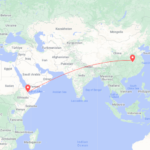





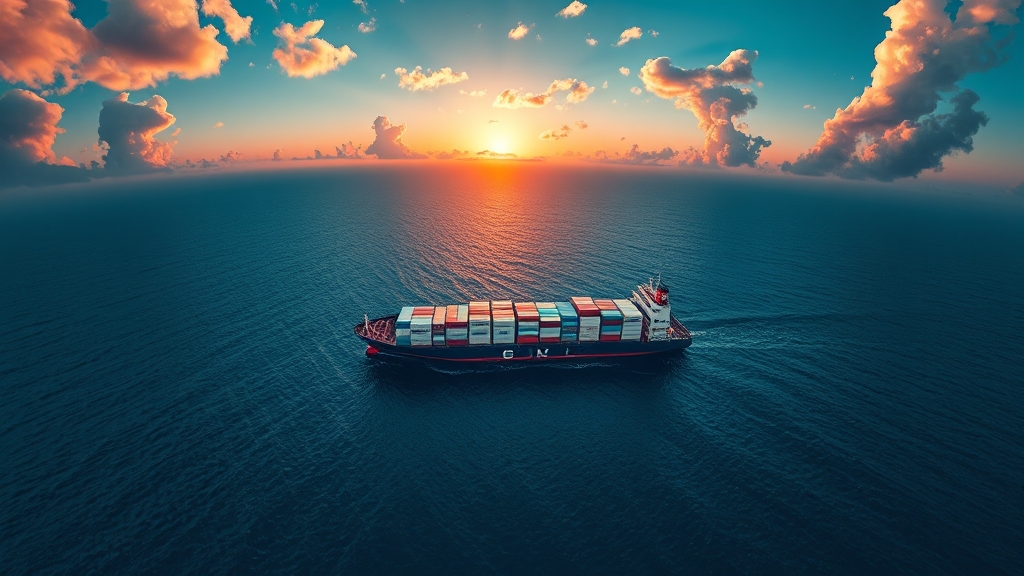
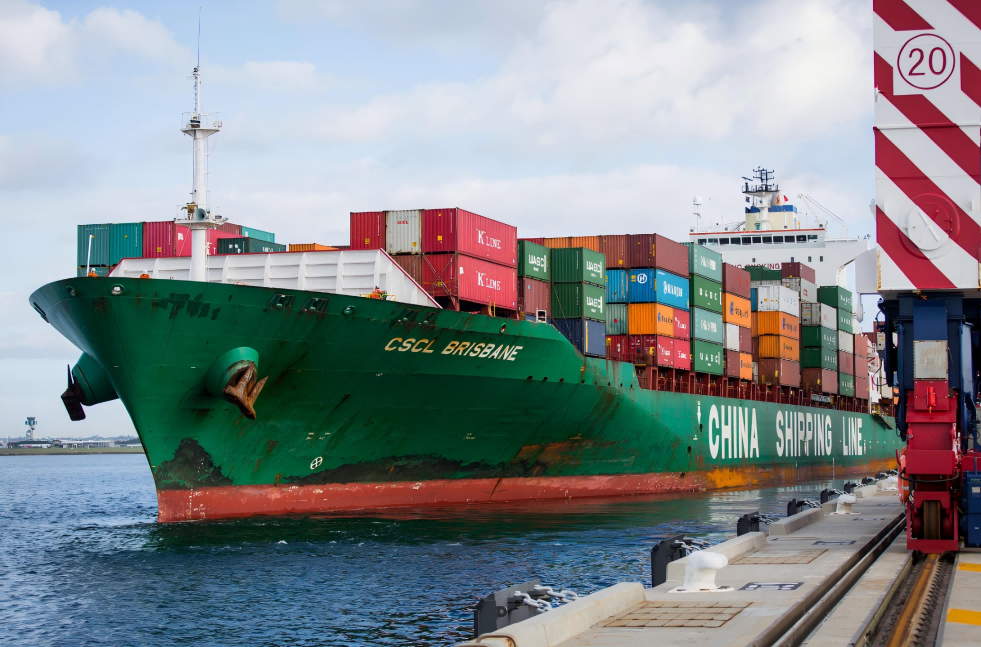
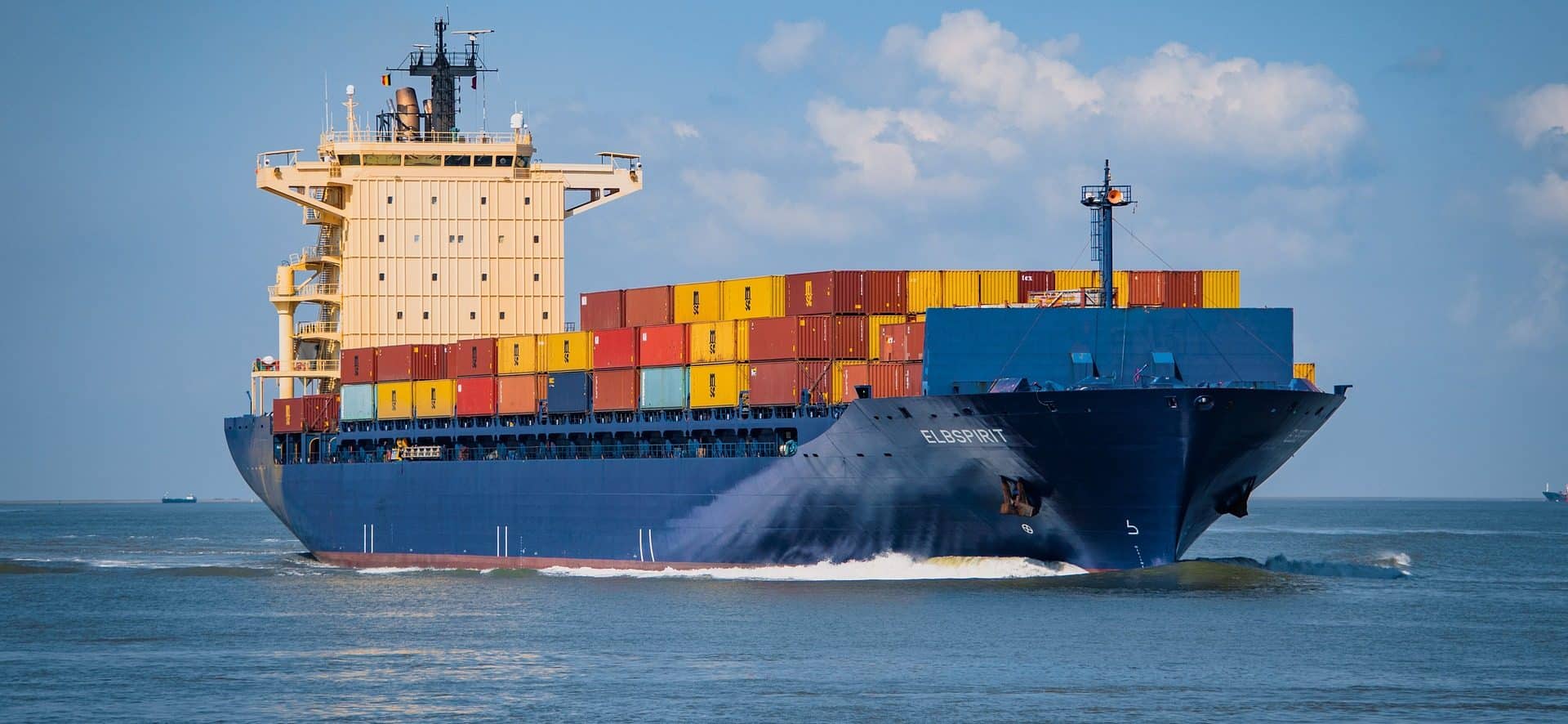

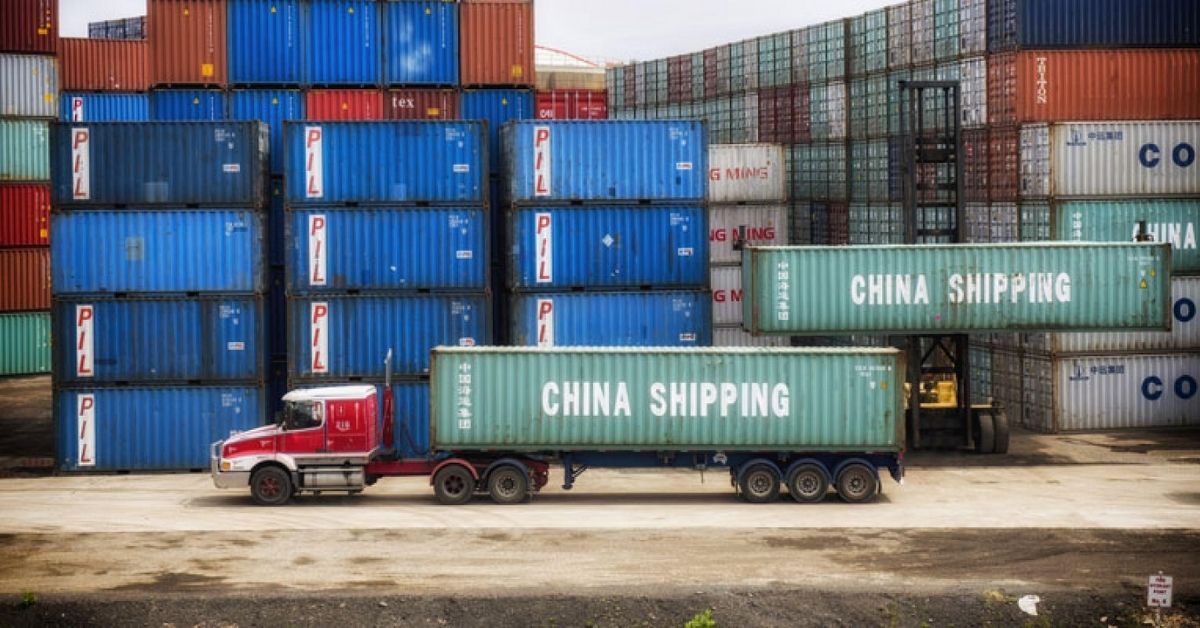





 Afrikaans
Afrikaans Shqip
Shqip አማርኛ
አማርኛ العربية
العربية Հայերեն
Հայերեն Azərbaycan dili
Azərbaycan dili Euskara
Euskara Беларуская мова
Беларуская мова বাংলা
বাংলা Bosanski
Bosanski Български
Български Català
Català Cebuano
Cebuano Chichewa
Chichewa 简体中文
简体中文 繁體中文
繁體中文 Corsu
Corsu Hrvatski
Hrvatski Čeština
Čeština Dansk
Dansk Nederlands
Nederlands English
English Esperanto
Esperanto Eesti
Eesti Filipino
Filipino Suomi
Suomi Français
Français Galego
Galego ქართული
ქართული Deutsch
Deutsch Ελληνικά
Ελληνικά Kreyol ayisyen
Kreyol ayisyen Harshen Hausa
Harshen Hausa Ōlelo Hawaiʻi
Ōlelo Hawaiʻi עִבְרִית
עִבְרִית हिन्दी
हिन्दी Hmong
Hmong Magyar
Magyar Íslenska
Íslenska Igbo
Igbo Bahasa Indonesia
Bahasa Indonesia Gaeilge
Gaeilge Italiano
Italiano 日本語
日本語 Basa Jawa
Basa Jawa ಕನ್ನಡ
ಕನ್ನಡ Қазақ тілі
Қазақ тілі ភាសាខ្មែរ
ភាសាខ្មែរ 한국어
한국어 كوردی
كوردی Кыргызча
Кыргызча ພາສາລາວ
ພາສາລາວ Latin
Latin Latviešu valoda
Latviešu valoda Lietuvių kalba
Lietuvių kalba Lëtzebuergesch
Lëtzebuergesch Македонски јазик
Македонски јазик Malagasy
Malagasy Bahasa Melayu
Bahasa Melayu മലയാളം
മലയാളം Maltese
Maltese Te Reo Māori
Te Reo Māori मराठी
मराठी Монгол
Монгол ဗမာစာ
ဗမာစာ नेपाली
नेपाली Norsk bokmål
Norsk bokmål پښتو
پښتو فارسی
فارسی Polski
Polski Português
Português ਪੰਜਾਬੀ
ਪੰਜਾਬੀ Română
Română Русский
Русский Samoan
Samoan Gàidhlig
Gàidhlig Српски језик
Српски језик Sesotho
Sesotho Shona
Shona سنڌي
سنڌي සිංහල
සිංහල Slovenčina
Slovenčina Slovenščina
Slovenščina Afsoomaali
Afsoomaali Español
Español Basa Sunda
Basa Sunda Kiswahili
Kiswahili Svenska
Svenska Тоҷикӣ
Тоҷикӣ தமிழ்
தமிழ் తెలుగు
తెలుగు ไทย
ไทย Türkçe
Türkçe Українська
Українська اردو
اردو O‘zbekcha
O‘zbekcha Tiếng Việt
Tiếng Việt Cymraeg
Cymraeg יידיש
יידיש Yorùbá
Yorùbá Zulu
Zulu